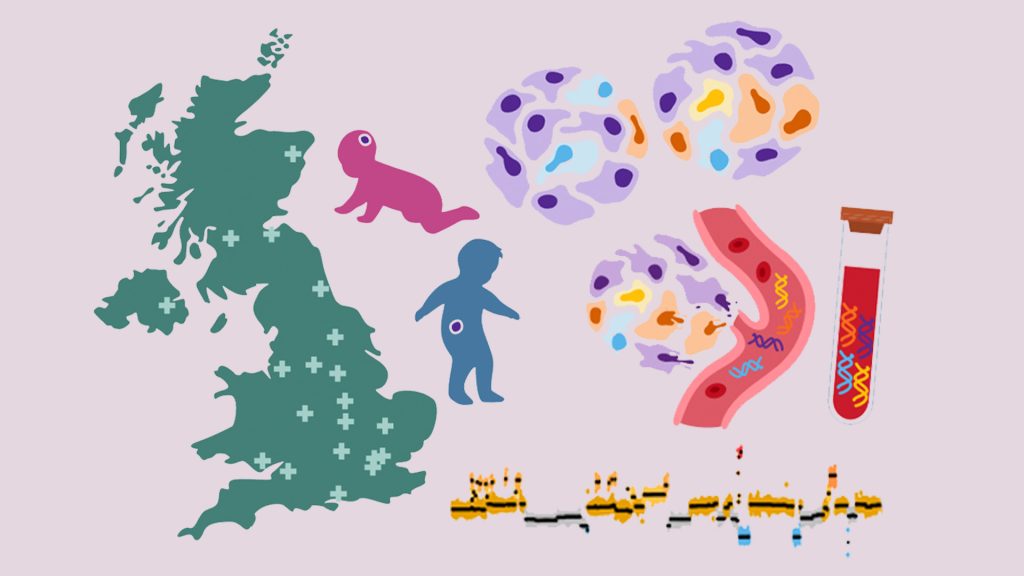Genetics study points to potential treatments for restless leg syndrome

HT researchers are part of an international team of scientists that discovered genetic clues to the cause of restless leg syndrome, a condition common among older adults. The finding could help identify those individuals at greatest risk of the condition and point to potential ways to treat it.
Restless leg syndrome can cause an unpleasant crawling sensation in the legs and an overwhelming urge to move them. Some people experience the symptoms only occasionally, while others get them every day. Symptoms are usually worse in the evening or at night and can severely impair sleep.
Despite the condition being relatively common – up to one in 10 older adults experience symptoms, while 2-3% are severely affected and seek medical help – little is known about its causes. People with restless leg syndrome often have other conditions, such as depression or anxiety, cardiovascular disorders, hypertension, and diabetes, but the reason why is not known.
Previous studies had identified 22 genetic risk loci –regions of our genome that contain changes associated with increased risk of developing the condition. But no known ‘biomarkers’ – such as genetic signatures – could be used to diagnose the condition objectively.
To explore the condition further, an international team of researchers pooled and analysed data from three genome-wide association studies. These studies compared the DNA of patients and healthy controls to look for differences more commonly found in those with restless leg syndrome. By combining the data, the team created a powerful dataset with more than 100,000 patients and over 1.5 million unaffected controls.
The results of the study are published in Nature Genetics.
Professor Di Angelantonio, Head of the Health Data Science Centre at Human Technopole and one of the senior authors, said: “This is the largest of its kind into this common – but poorly understood – condition. By understanding the genetic basis of restless leg syndrome, we hope to find better ways to manage and treat it, potentially improving the lives of millions of people worldwide.”
The team identified over 140 new genetic risk loci, increasing the number known eight-fold to 164, including three on the X chromosome. The researchers found no strong genetic differences between men and women, despite the condition being twice as common in women as in men. This suggests that a complex interaction of genetics and the environment (including hormones) may explain the gender differences we observe in real life.
Two differences the team identified involve genes known as glutamate receptors 1 and 4, which are important for nerve and brain function. These could potentially be targeted by existing drugs, such as anticonvulsants like perampanel and lamotrigine, or used to develop new drugs. Early trials have shown positive responses to these drugs in patients with restless leg syndrome.
The researchers could use basic information like age, sex, and genetic markers to accurately rank who is more likely to have severe restless leg syndrome nine out of ten times.
To understand how restless leg syndrome might affect overall health, the researchers used Mendelian randomisation. This uses genetic information to examine cause-and-effect relationships. It revealed that the syndrome increases the risk of developing diabetes.
Although low levels of iron in the blood are thought to trigger restless leg syndrome – because they can lead to a fall in the neurotransmitter dopamine – the researchers did not find strong genetic links to iron metabolism, they could not completely rule it out as a risk factor.
Professor Juliane Winkelmann, said: “For the first time, we have achieved the ability to predict restless leg syndrome risk. It has been a long journey, but now we are empowered to not only treat but even prevent the onset of this condition in our patients.”
A full list of funders can be found in the study paper.
Reference
Schormair et al. Genome-wide meta-analyses of restless legs syndrome yield insights into genetic architecture, disease biology, and risk prediction. Nature Genetics; DATE; DOI: https://doi.org/10.1038/s41588-024-01763-1




